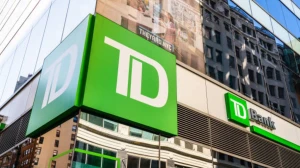
What is a Money Market Account And How Money Market Accounts Work?
Learn what a Money Market Account (MMA) is and how it works. Compare high-interest rates, check-writing privileges, and minimum deposits.
by Sai V
Published Sep 01, 2023 | Updated Sep 01, 2023 | 📖 16 min read
On This Page
- What is a Money Market Account?
- How Money Market Accounts Work?
- What is a Money Market Account Example?
- Money Market Account Minimum Balance
- What Are the Rules for a Money Market Account?
- Do Money Market Accounts Have Limits?
- Money Market Account Typical Interest Rate
- What Are the Pros and Cons of Money Market Accounts (MMAs)?
- What Are Effective Ways to Utilize a Money Market Account?
- When is a Money Market Account Not Suitable?
- When is It Possible to Make Withdrawals From a Money Market Account?
What is a Money Market Account?
A Money Market Account (MMA), also referred to as a Money Market Deposit Account (MMDA), is a type of interest-bearing financial account offered by banks and credit unions. It stands out due to its distinct features that distinguish it from traditional accounts. Unlike standard savings accounts, MMAs generally offer higher interest rates, making them an attractive option for individuals seeking to maximize their savings.
Moreover, these accounts often come with added conveniences such as check-writing and debit card privileges, granting account holders more flexible access to their funds.However, it's important to be aware that money market accounts may carry certain restrictions or limitations, setting them apart from regular checking accounts. These restrictions could include limits on the number of withdrawals or transfers allowed within a given time frame.
Despite their limitations, money market accounts play a significant role in financial calculations, contributing to an individual's or entity's overall tangible net worth. As a result, MMAs serve as a useful tool for individuals looking to balance higher interest earnings with accessible fund management.
How Money Market Accounts Work?
Money Market Accounts (MMAs) are financial products offered by both traditional banks and online institutions, as well as credit unions. These accounts provide a unique blend of features that cater to individuals seeking a balance between savings and checking functionalities. MMAs are designed to offer account holders some key benefits of a savings account while incorporating the features commonly associated with a checking account.
Interest Earning Opportunity:
One of the primary advantages of Money Market Accounts is the opportunity to earn interest on the funds deposited. In fact, the interest rates provided by MMAs are typically higher than those offered by traditional savings accounts. However, it's important to note that the interest rates on MMAs are subject to change, as they are often variable and influenced by market conditions. This aspect allows account holders to potentially benefit from higher returns on their balances.
Checking Account Features:
Unlike traditional savings accounts that may have limited transaction capabilities, MMAs bridge the gap by incorporating features typically found in checking accounts. Account holders often receive a debit card associated with their MMA, which grants them access to Automated Teller Machines (ATMs). This enables convenient deposits, withdrawals, and transfers, empowering individuals to manage their finances with ease.
Check-Writing Privileges:
In addition to debit card access, Money Market Accounts may extend check-writing privileges to account holders. This means that clients can write checks against their MMA balances, providing them with a traditional method of transferring funds and making payments. This flexibility enhances the usability of MMAs for everyday financial transactions.
Minimum Deposits and Balance Requirements:
To open a Money Market Account, most banks and credit unions require an initial minimum deposit. Moreover, to avoid potential service charges, account holders must maintain their balances above a predetermined threshold. Falling below this minimum balance might trigger fees, so it's crucial for account holders to adhere to these requirements to make the most of their MMAs.
Short-Term Financial Goals:
Money Market Accounts are particularly well-suited for individuals with short-term financial objectives. These accounts cater to those who are saving up for specific purchases in the near future, such as a vacation, down payment for a car, or building an emergency fund. Due to their potential for higher interest earnings and the accessibility of funds, MMAs offer a convenient and effective means of achieving these goals.
Limitations and Long-Term Use:
While MMAs provide an array of benefits, they are not designed for long-term financial planning, such as retirement savings. These accounts are optimized for short-term financial aspirations due to the potential variability of interest rates and transaction limitations. As such, individuals seeking to secure their long-term financial future would typically explore other investment and savings options.
What is a Money Market Account Example?
A money market account is a type of savings account offered by banks, credit unions, and online banking platforms. It combines the features of a traditional savings account with certain aspects of a checking account. Money market accounts are known for their competitive interest rates, making them an attractive option for individuals looking to earn a higher return on their savings compared to a regular savings account.
Example Money Market Accounts:
Vio Bank Cornerstone Money Market Savings Account:
- Interest Rate: This account offers a competitive 4.85% annual percentage yield (APY). The APY represents the interest you can earn on your deposited funds over the course of a year.
- Minimum Deposit: To open this account, you need a minimum deposit of $100. This is the initial amount you must contribute when setting up the account.
- Monthly Fee: There is no monthly fee associated with this account, which means you won't incur regular charges just for keeping your money in it.
- Withdrawal Limit: Vio Bank allows six free withdrawals per month, which is in line with typical money market account limits. Going over this limit may result in fees or restrictions.
Ally Bank Money Market Account:
- Interest Rate: Ally Bank offers a 4% APY on its money market account. This is a competitive rate, and it allows your savings to grow steadily over time.
- Minimum Deposit: One notable feature of this account is that it has no minimum deposit requirement. You can open it with any amount.
- Monthly Fee: Similar to Vio Bank, Ally Bank's money market account does not charge a monthly fee.
- ATM Access: Ally Bank provides free ATM withdrawals through the Allpoint network, adding convenience for accessing your funds.
UFB Direct Premier Money Market Account:
- Interest Rate: UFB Direct offers a 4.81% APY on its Premier Money Market Account. This competitive rate applies to all balance tiers.
- Minimum Deposit: To open this account, you need a minimum deposit of $5,000, which is higher than the previous examples.
- Monthly Fee: There is no monthly fee if you maintain a $5,000 balance in the account. Otherwise, a $10 monthly fee applies.
- Withdrawal Limit: UFB Direct, like Vio Bank, allows six free withdrawals per month.
Money Market Account Minimum Balance
A Money Market Account, often abbreviated as MMA, sets itself apart from traditional savings accounts by requiring a higher minimum balance. To open a Money Market Account, you must deposit a specific minimum amount, a threshold that varies depending on the financial institution. These minimum balances typically range from $1,000 to $25,000 or more.This requirement ensures that individuals who opt for MMAs maintain a certain level of commitment to their savings.
In exchange for this higher minimum balance, Money Market Accounts offer the benefit of potentially earning a higher interest rate compared to regular savings accounts. This feature makes MMAs an attractive choice for those looking to grow their savings while still maintaining access to their funds for occasional withdrawals, all within the framework of the institution's specific minimum balance criteria.
What Are the Rules for a Money Market Account?
Transaction Limits: MMAs are subject to federal transaction limits, typically governed by Regulation D. This regulation traditionally allows for up to six transfers or withdrawals per month or statement cycle. Transactions that count toward this limit include:
- Check-writing
- Debit card purchases
- Transfers from one account to another
However, it's essential to note that in response to the COVID-19 crisis, the Federal Reserve temporarily suspended the Regulation D limit on monthly MMA withdrawals in April 2020. Nevertheless, individual banks and credit unions may still impose a fee if the usual monthly limit is exceeded.
Minimum Balance Requirements: Many MMAs have minimum balance requirements that you must meet to open and maintain the account. These requirements can vary widely among financial institutions. Typically, higher balances are rewarded with higher interest rates (APYs).
Variable Interest Rates: MMAs offer variable interest rates, meaning the rate can fluctuate over time based on market conditions and the bank's policies. Unlike Certificates of Deposit (CDs), which offer fixed interest rates for a specified term, MMAs provide the potential for interest rate adjustments, which can be both advantageous and a potential drawback.
FDIC or NCUA Insurance: Funds deposited in MMAs are typically protected by FDIC insurance (or NCUA insurance for credit union accounts) up to a limit of $250,000 per depositor, per account ownership category. This insurance ensures that your money is safe in the event of a bank failure.
Check-Writing Privileges: Most MMAs come with check-writing privileges. This means you can write checks from the account, allowing for some level of flexibility in accessing your funds. However, MMAs are not designed for extensive check-writing, and there may be limitations on the number of checks you can write in a month.
Debit Card: Some MMAs offer a debit card that allows you to make ATM withdrawals and limited point-of-sale transactions. The availability and terms of debit card usage can vary between financial institutions.
Fees: Be aware of any monthly maintenance fees associated with MMAs. Some banks may charge these fees unless you meet specific criteria, such as maintaining a minimum balance or having other accounts with the same institution. Fee waivers are common, but it's important to understand the conditions for avoiding fees.
Deposit Requirements: Different banks may have their own deposit requirements for opening a Money Market Account. These requirements can include an initial deposit amount to open the account. Ensure you are aware of and can meet these requirements before opening an account.
Interest Compounding: Interest on MMAs is typically compounded daily and paid out monthly. This compounding method allows you to earn interest on both your principal (the initial amount you deposited) and any interest that has already been earned.
Withdrawal Penalties: Unlike Certificates of Deposit (CDs), which often impose penalties for early withdrawals, MMAs generally do not penalize you for accessing your funds before any specific term. However, they are subject to transaction limits as mentioned earlier, and excessive withdrawals may lead to account restrictions.
Limited Use for Everyday Banking: MMAs are not designed for everyday spending and transactions due to their transaction limits and focus on interest-earning. While they provide some flexibility, they are primarily intended for savings and should not be considered a primary checking account.
Do Money Market Accounts Have Limits?
Money market accounts, while offering a unique blend of features from both checking and savings accounts, do come with certain constraints that account holders should be aware of.
Withdrawal Limits: One of the primary limitations of a money market account is the restriction on the number of withdrawals or transfers you can make within a single statement period. Most institutions set a cap, typically around six transactions, beyond which additional withdrawals may incur fees or prompt the bank to convert your money market account into a checking account.
Transaction Types: Money market accounts generally differentiate between various transaction types. While certain actions like ATM withdrawals or in-person withdrawals at the bank may not count towards the withdrawal limit, others such as debit card purchases, online transfers, and check transactions typically do. Understanding these distinctions is crucial to managing your account effectively.
Minimum Balance Requirements: Many money market accounts impose minimum balance requirements, which can be higher compared to regular savings or checking accounts. Failing to maintain the required balance may result in fees or the loss of certain account benefits.
Monthly Service Charges: Some financial institutions charge monthly service fees for money market accounts. Although fee-free options exist, they often necessitate maintaining a minimum balance or fulfilling specific conditions to avoid these charges.
Limited Check-Writing: While money market accounts provide check-writing capabilities, they do so within prescribed limits. This means that while you can write checks against your account balance, there are restrictions on the number of checks you can issue in a given period.
Interest Rate Variability: The interest rates offered by money market accounts can vary significantly from one institution to another. In some cases, the rates may surpass those offered by standard savings accounts, while in others, they may be lower. Additionally, certain banks may incentivize higher balances with more favorable interest rates.
Overdraft Considerations: Overdraft policies for money market accounts vary among banks. Some institutions may offer overdraft services, but utilizing them often results in fees or may draw from a line of credit with relatively high-interest rates.
Money Market Account Typical Interest Rate
Money market accounts typically offer an average interest rate of around 0.23% Annual Percentage Yield (APY), but the actual rate can vary based on factors like your account balance and the specific bank. These accounts function like savings accounts with monthly withdrawal limits, and for potentially higher returns, high-yield savings accounts might be worth considering.
|
Account Balance |
Interest Rate Variations by Account Balance |
|
$2,500 |
0.17% |
|
$10,000 |
0.20% |
|
$25,000 |
0.24% |
|
$50,000 |
0.28% |
|
$100,000 |
0.33% |
|
$250,000 |
0.37% |
What Are the Pros and Cons of Money Market Accounts (MMAs)?
Advantages of Money Market Accounts (MMAs):
- Money market accounts often present the benefit of offering more favorable interest rates in comparison to standard savings accounts. This translates to accelerated growth of your savings through interest accrual.
- MMAs frequently grant the convenience of check-writing, allowing account holders to access their funds easily and facilitate payments, eliminating the need for a traditional checking account.
- A significant number of money market accounts include debit card privileges, providing account holders with the flexibility to make purchases and withdraw cash from ATMs.
- MMAs enjoy the safety net of federal insurance protection. Accounts held at banks are insured by the Federal Deposit Insurance Corporation (FDIC), while those at credit unions are covered by the National Credit Union Administration (NCUA). This safeguard ensures the security of deposits, usually up to a limit of $250,000 per depositor per bank.
Disadvantages of Money Market Accounts (MMAs):
- Money market accounts often come with limitations on the number of transactions permitted each month. Federal regulations typically cap certain types of withdrawals and transfers from MMAs at six per statement cycle. Exceeding this limit can lead to fees or even account closure.
- Some MMAs may involve monthly maintenance fees or transaction-related charges, which can eat into your earnings if not managed carefully. A clear understanding of the fee framework tied to your specific account is crucial.
- Banks and credit unions usually mandate account holders to maintain a minimum balance in their money market accounts to avoid fees or the possibility of account closure. Falling below this required minimum can result in penalties.
What Are Effective Ways to Utilize a Money Market Account?
Unlocking the full potential of a money market account involves recognizing its versatility. These accounts offer competitive interest rates and liquidity, making them valuable for various financial goals. Whether you're building an emergency fund, saving for special occasions, addressing tax payments, or planning home renovations, money market accounts provide a secure platform to grow your savings while maintaining accessibility.
Emergency Fund: Your money market account can serve as a safe haven for your emergency fund. This ensures that your savings are not only easily accessible but also earning some interest while waiting for unforeseen financial needs.
Wedding Fund: Planning for a wedding can be a significant financial undertaking. Using a money market account allows you to earmark funds specifically for this purpose while capitalizing on potential interest gains.
Vacation Savings: When saving for a dream vacation, consider stashing your funds in a money market account. It not only keeps your money secure but also lets it grow steadily until you're ready to embark on your adventure.
Tax Reserves: If you face periodic tax payments, like quarterly estimated taxes for self-employed individuals, a money market account is an excellent place to allocate these funds, offering both safety and modest earnings.
Home Improvement Projects: A money market account can be a valuable tool for setting aside funds for these projects, ensuring you have the necessary resources when it's time to start.
New Vehicle Savings: Whether you're planning to purchase a new or used car, a money market account can be used to accumulate funds for your down payment or even the entire purchase price.
Retirement Planning: While money market accounts are not typically the primary choice for long-term retirement savings due to their lower potential returns, they can still play a role in maintaining liquidity within a diversified retirement portfolio.
Short-Term Goals: Any short-term savings goal, such as acquiring a new gadget, funding a special event, or saving for a down payment on a house, can be facilitated by a money market account due to its competitive interest rates and accessibility.
When is a Money Market Account Not Suitable?
A Money Market Account may not be the ideal choice for everyone, as its suitability depends on individual financial goals and circumstances. Instances where it might be less suitable include the need for an everyday banking account, a preference for fixed interest rates over variable ones, or difficulty meeting high balance requirements for maximum returns, in which cases alternative banking solutions like checking accounts, Certificates of Deposit (CDs), or high-yield savings accounts could be more appropriate choices.
- Money market accounts are not ideal for everyday expenses; checking accounts are better suited for this purpose due to transaction limits.
- Money market accounts have variable interest rates, which may not be suitable if you prefer the stability of a fixed interest rate. In such cases, Certificates of Deposit (CDs) can offer guaranteed rates.
- Some money market accounts require maintaining a high balance to earn the best interest rates, which can limit accessibility. If you can't meet these balance requirements, high-yield savings accounts with lower balance thresholds may be more appropriate.
When is It Possible to Make Withdrawals From a Money Market Account?
Withdrawals from a money market account can generally be made at any time, offering account holders flexibility in accessing their funds. However, banks may impose restrictions on the number of withdrawals allowed during a single statement period. Going over this limit might incur additional fees or, in some cases, prompt the bank to convert the money market account into a checking account.
It's important to note that certain types of transactions, like ATM withdrawals or in-person withdrawals at the bank, are often excluded from these limitations, while activities such as debit card purchases, online transfers, and check transactions typically count toward the withdrawal limit. Consequently, individuals should review their bank's specific policies regarding money market account withdrawals to ensure they understand any restrictions or potential charges that may apply.
What is a Money Market Account - FAQs
1. What is a Money Market Account (MMA)?
A Money Market Account is an interest-bearing financial account offered by banks and credit unions, combining features of savings and checking accounts.
2. How do Money Market Accounts (MMAs) work?
MMAs offer higher interest rates than regular savings accounts, provide check-writing and debit card privileges, and require a minimum balance to earn interest.
3. Are there limitations on Money Market Account withdrawals?
Yes, MMAs often have monthly transaction limits, typically around six withdrawals, with excess withdrawals subject to fees or account conversion.
4. What are the advantages of Money Market Accounts?
MMAs offer competitive interest rates, check-writing, debit card access, and federal insurance protection for enhanced savings growth and accessibility.
5. When are Money Market Accounts not suitable for use?
MMAs may not be ideal for everyday expenses, those preferring fixed interest rates, or individuals unable to meet high balance requirements for maximum returns.




